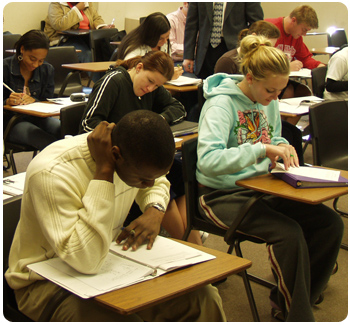"A fundamental tenet of all institutions of higher learning is academic honesty. Academic
work must depend upon respect for and acknowledgement of the research and ideas of
others. Misrepresentation of someone else's work as one's own is a most serious offense
in any academic setting. Academic misconduct in any form cannot be condoned."
-- The Student Conduct Code, Section 7
Academic Integrity Reporting Form (maxient.com)
